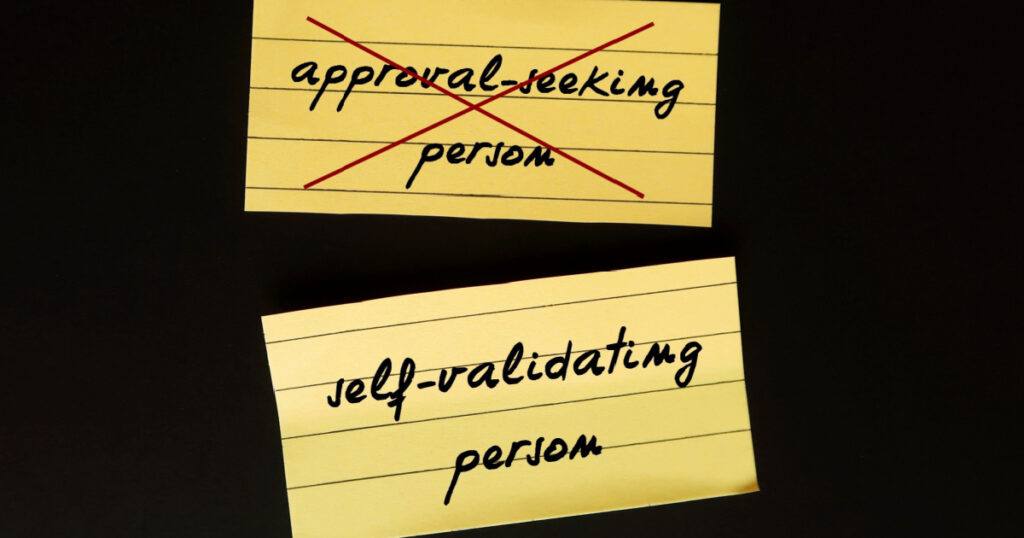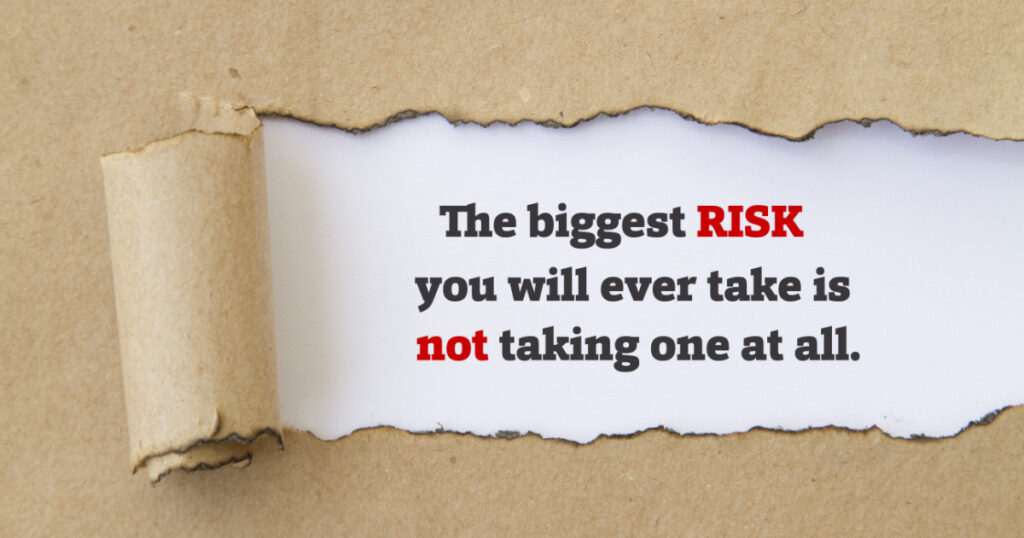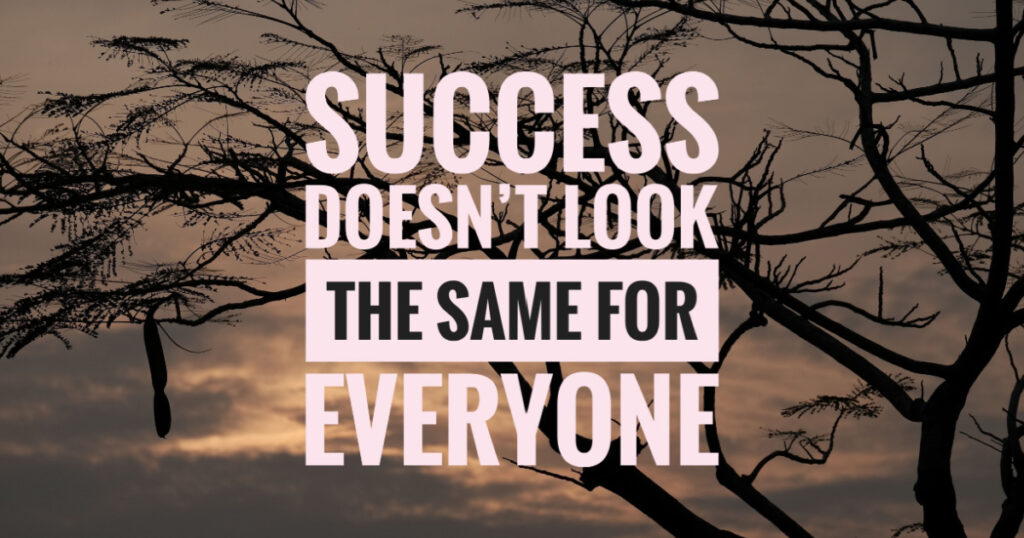Self-confidence is a crucial aspect of our lives that affects how we perceive ourselves and interact with others. Often misunderstood, self-confidence goes beyond arrogance or boastfulness. It is the belief in our abilities, skills, and worth that enables us to face challenges with resilience and embrace opportunities without fear of failure. On the other hand, low self-confidence can really hold us back from achieving our goals and living the lives we want to live. Let’s look at these seven signs of low self-confidence and how to overcome them. Understanding these signs can help you identify areas where self-confidence may be lacking and work towards building a stronger self-belief system.
Importance of Self-Confidence

Self-confidence empowers us to lead a fulfilling and successful life. It fosters a positive mindset, enabling us to take risks, pursue goals, and handle setbacks effectively. People may struggle to express their ideas, form meaningful relationships, and achieve personal growth without self-confidence. (1) Differentiating self-confidence from arrogance is vital. While arrogance involves an inflated sense of superiority and belittling others, true self-confidence is a healthy self-assurance that respects and appreciates others. It stems from an understanding of our own worth, and acknowledging the value of those around us. High self-esteem is often not the loudest in the room, but it is the strongest when it counts. Where arrogance is intimidated by others and their success, self-confidence has no problem celebrating other people because they have enough confidence in themselves and their own path.
Read: 7 Reasons Why Confident And Strong Women Are Targets For Narcissists
Self-confidence is not necessarily black and white. What this means is that most people aren’t either self-confident or they’re not. Often, rather, we are confident in some areas and not in others. Sometimes our self-esteem is higher, and other times it is not. True self-confidence, however, knows that even in low times, they are still capable, valuable, and worthy. So, how do you know if you have high or low self-esteem? Here are seven signs that you’ve got some personal work to do. (2, 3)
1. Negative Self-Talk

Negative self-talk is a common sign of low self-confidence. It involves a continuous stream of self-critical thoughts that undermine our abilities and values. This pessimistic inner dialogue can become a self-fulfilling prophecy, sabotaging our potential and holding us back from achieving our goals. Self-talk like “ugh, you’re so stupid, how could you have messed that up?” or “you talked way too much at that party, everyone probably thinks you are really annoying”. These are examples of hyper-critical, negative self-talk.
To overcome negative self-talk, practice self-awareness and mindfulness. Pay attention to your thoughts and challenge negative statements with realistic and positive ones. Replace self-criticism with self-compassion, focusing on your strengths and acknowledging small successes along the way. Say things like “Ah, you didn’t quite get that right. It’s okay, everyone makes mistakes, let’s think what I can do to learn from this mistake” or “I had fun at that party, but I think I talked too much. I am going to work more on my listening skills for the next time”.
2. Fear of Failure

A fear of failure is another manifestation of low self-confidence. This fear creates immense anxiety, preventing individuals from taking risks, pursuing their passion, and stepping out of their comfort zone. It restricts personal growth and limits opportunities. It can be paralyzing and prevent you from even starting to work towards a goal or take form in both intentional and unintentional self-sabotage.
To overcome the fear of failure, reframe it as a learning opportunity. Embrace failure as a stepping stone towards success and personal development. Take small steps outside your comfort zone, gradually expanding your comfort zone and building resilience along the way. Break your larger goal up into small increments or steps, and concentrate on achieving each one along the way. Celebrate each attempt, regardless of the outcome, as a valuable learning experience.
3. Seeking Validation from Others

Individuals with low self-confidence often rely on external validation to feel worthy or competent. Constantly seeking approval from others can lead to a constant need for reassurance and make individuals susceptible to criticism and judgment, thereby hindering personal growth. In today’s social media-driven world, this is an easy trap to fall into. While it can feel great momentarily when you get the number of likes or comments you want, this high is only temporary. Conversely, you can feel even worse when you don’t get as many likes or comments as you thought you would, spiraling into feelings of not being good enough.
To break free from seeking validation, focus on self-validation. Recognize your worth and acknowledge your achievements. Seek feedback from trusted individuals who can provide constructive criticism and support your growth. Embrace self-compassion and remember that your self-worth should not be dependent on the opinions of others. If you need to, put the phone down. Hide social media, or get rid of it altogether. Likes and comments on an Instagram post or TikTok video do not determine your worth.
Read: 8 Signs You Have A Toxic Relationship With Yourself
4. Comparing Yourself to Others

Comparing oneself to others is a detrimental habit that erodes self-confidence. This sign of low self-confidence breeds jealousy, insecurity, and self-doubt. Constantly measuring your worth against others can lead to a negative self-image and hinder your personal growth. This is another one that has become all too normalized, thanks to social media. We are bombarded with other people’s seemingly perfect (though often edited) photos, relationships, successes, and achievements – and what do we do? Compare them to our appearance, relationships, careers, and lives. The problem with this is that we are comparing someone’s highlights that they post on social media to our whole, complex, imperfect, and sometimes mundane lives. The reality is that their lives are just as complex as ours; we’re only seeing the positive bits.
To overcome the habit of comparison, practice gratitude and self-acceptance. Focus on your own journey rather than comparing it to others. Celebrate your progress and accomplishments, no matter how small. Surround yourself with supportive and like-minded individuals who encourage self-improvement without fueling comparison. Again, try putting the phone down and distancing yourself from social media – you’ll be amazed at how much better you feel.
5. Avoiding Taking Risks

A lack of self-confidence often leads to risk aversion. Fear of failure, rejection, or criticism can create a reluctance to step outside one’s comfort zone. However, avoiding risks can perpetuate a stagnant and unfulfilled life.
To build self-confidence, start by taking small risks. Set achievable goals that challenge you but are within reach. Celebrate each step forward, regardless of the outcome. Surround yourself with positive role models who inspire and encourage risk-taking. As you accumulate successful experiences, your self-confidence will naturally grow. You will never achieve your goals if you don’t take the first step, and yes, you will likely have setbacks and failures along the way. What you will get out of the process, however, will bring so much more into your life than you could ever imagine, regardless of the final outcome.
Read: What You See First May Reveal How You Approach Life Choices
6. Downplaying Accomplishments

Individuals with low self-confidence tend to downplay their achievements, dismissing their successes as mere luck or insignificant. They believe that their achievements are less to do with their own hard work, determination, and skill, and instead luck or because “better people weren’t playing”. This undermines self-belief and perpetuates a negative self-image. For example, you started running and worked up to doing your first 5km race. People are congratulating you, but what do you say in return? It’s not really a big deal, it’s not like I ran a marathon. Or perhaps someone who runs a lot congratulates you, and you respond with Yeah well, it’s nothing compared to what you’ve achieved. Sound familiar?
To overcome this sign of low self-confidence, practice self-acknowledgment and gratitude. Celebrate your accomplishments, no matter how small, as a result of your hard work and dedication. Keep a journal of your achievements and revisit it regularly to remind yourself of your capabilities. Share your successes with supportive individuals who can reinforce your self-worth. Always remember that your achievement is significant and important, regardless of anyone else’s.
7. Avoiding Social Situations

Low self-confidence often leads to social anxiety and a reluctance to engage in social situations. The fear of judgment, rejection, or humiliation hampers the ability to build meaningful connections and foster personal growth. You’re so afraid that you won’t be liked that you avoid going at all.
To overcome this sign, start by engaging in small social interactions and gradually expand your comfort zone. Practice active listening and genuine interest in others, realizing that everyone has their own insecurities and struggles. Surround yourself with individuals who appreciate and value you for who you are. Seek therapy or support groups if social anxiety presents significant challenges.
Read: Science Links Anxiety To High IQ’s & Social Anxiety To Very Rare Psychic Gift
Self-Confidence Takes Time To Build

Building self-confidence requires commitment, self-reflection, and perseverance. You can unleash your potential and create a more fulfilling life by recognizing the signs of low self-confidence and taking actionable steps to overcome them. Higher self-esteem allows you to set boundaries and stick to them. It allows you to forge deeper and more meaningful relationships with friends, family, and romantic partners. It can help you grow in your career and find more purpose in your life. Most importantly, it allows you to live happily and freely so that you can actually enjoy your life. Remember, self-confidence is not an overnight transformation but a journey of continuous growth and self-discovery. Embrace the process, celebrate progress, and appreciate the unique qualities that make you who you are.
Keep Reading: Optical illusion reveals if you’re a stickler for the rules or have low self-esteem based on what you see first
Sources
- “How to Manage Low Self-Esteem.” Healthline. Corey Whelan. October 5, 2022.
- “6 Ways to Build Self-Esteem.” Psychology Today. Tchiki Davis, Ph.D.. December 12, 2023.
- “6 Proven Ways to Build Confidence.” Psychology Today. Amy Morin. May 30, 2023.

